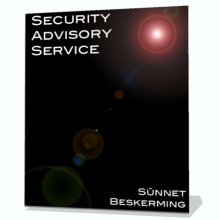Australian Government [REDACTED] Public [REDACTED] Retaining Internet Traffic
In less than a month Australians will be going to the polls to elect a new Federal Government. In the run up to the last federal election, there were promises and counter promises from both major parties to enact some form of Internet filtering, something that moved forward post-election, but has attracted criticism along the way.
This time around, the arguments being put forward sound very similar to last time, with both parties expected to support some form of Internet filtering. What has surprised, and shocked, many is the release of a heavily redacted document detailing plans to require ISPs to retain traffic for law enforcement access, irrespective of whether a user is suspected of any wrongdoing.
With so much information redacted, the document almost appears to be a parody of itself. With the government pushing for the ability to retain and peruse Internet traffic at will, the hiding of the content of a consultation paper mocks the idea of the Australian public having a transparent government and the ability to observe the machinations of policymaking.
There is no evidence that the document has any security information on it whatsoever, despite the name of the file. The only handling limitation that can be seen is "Not for further distribution". Claims that parties involved have been sworn to secrecy don't make sense off the released document alone. Either there are further documents that are classified appropriately that provide the guidance and establish the primacy for secrecy, or the government needs to revisit how to use established procedure to handle and control the flow of information and not make it up as they go along.
If it's secret, then make it so. If it isn't sensitive, then don't hide it.
Rationale given for redacting so much information is that the government wants to avoid "premature unnecessary debate" which, combined with the unredacted data "could potentially prejudice and impede government decision making". It is hard to avoid considering
Even more baffling is the redaction of terminology in the definitions section of the document. What possible sensitivity could there be in acronyms or Information Security specific terminology that isn't already alluded to by the plan to store all Internet traffic?
The unredacted questions that were passed to industry members make it seem like a requirement to store all network traffic is nothing more than a formality. The question will be a matter of when, not if. With the similar schools of thought on Internet filtering on both sides of parliament, even a change of power is unlikely to see this plan go away in its entirety.
At least the Australian Government gets the idea of redacting information correct, physically blacking out informaiton, then scanning it back into electronic form, but it's disturbing that this is the most positive aspect of the release of this document.
The EU's Data Retention Directive is cited at the start of the redacted document, so this may give an insight into what the government may be planning. Article six of the Directive directs member states of the EU to retain data for no less than six months, and no more than two years, from the time of communication. Normally known for its strong stance on the rights to privacy of its citizens, and to have their data protected, the EU's retention policy has good intentions but doesn't seem to meld well with these extant concepts. There is push back beginning to take place but this has so far only targeted national implementations and not the overarching EU directive.
The road to hell is paved with good intentions. The more reactionary reader might argue that the road to a totalitarian state is also paved with good intentions and that free is becoming a dirty four letter word. Perhaps Hayek's The Road to Serfdom should be on more political reading lists.
Perhaps the best comment comes from several years ago, with similar arguments for similar filtering attempts in Australia "The fact of the matter is that no Australian family today need be exposed to the type of material that (the Australia Institute report) highlighted," ... "No other countries in the world, other than a few totalitarian regimes, have subjected their populations to mandatory filtering".
26 July 2010
Social bookmark this page at eKstreme.
Alternatively, Bookmark or Share via AddThis
Do you like how we cover Information Security news? How about checking out our company services, delivered the same way our news is.
Let our Free OS X Screen Saver deliver the latest security alerts and commentary to your desktop when you're not at your system.
Comments will soon be available for registered users.
 Subscribe to our feed.
Subscribe to our feed.